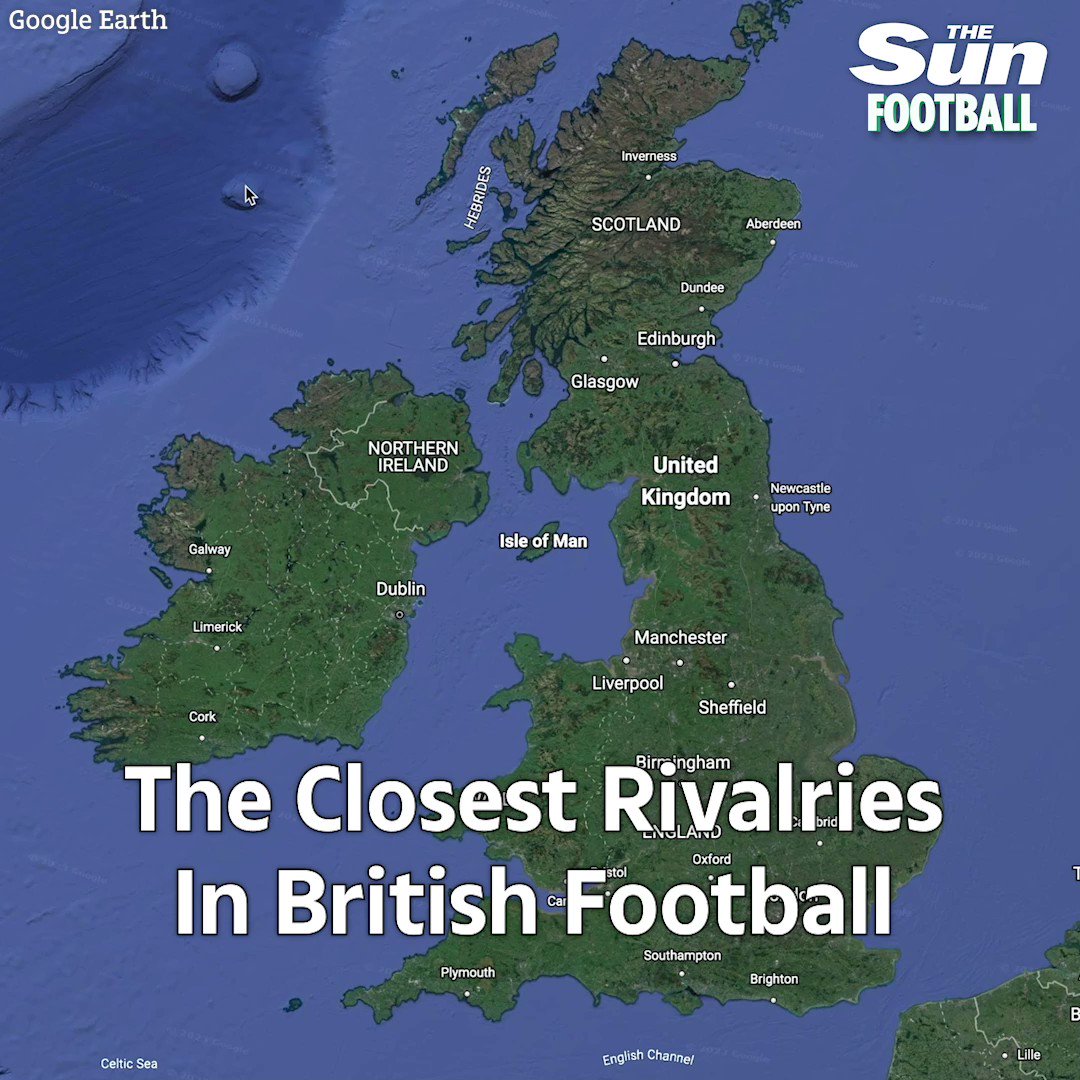“Football Rivalries in Nigeria: A Nation Defined by Passion and Competition
Related Articles Football Rivalries in Nigeria: A Nation Defined by Passion and Competition
Football Rivalries in Nigeria: A Nation Defined by Passion and Competition
Nigeria, a nation renowned for its fervent love of football, boasts a vibrant and passionate football culture. Beyond the national team’s exploits, the heart of Nigerian football lies in the intense rivalries that ignite local stadiums and captivate the nation. These rivalries, often steeped in history, culture, and regional pride, provide a unique lens through which to understand the social fabric of Nigeria.
The Genesis of Nigerian Football Rivalries
The roots of Nigerian football rivalries can be traced back to the colonial era, when football was introduced by British colonizers. Early football clubs were often formed along ethnic, regional, or occupational lines, laying the foundation for future rivalries. As football gained popularity, these rivalries intensified, fueled by local pride and the desire to assert dominance.
Key Rivalries Shaping Nigerian Football
Several key rivalries have shaped the landscape of Nigerian football, each with its unique characteristics and historical context.
1. Enugu Rangers vs. IICC Shooting Stars (The Oriental Derby)
Arguably the most iconic rivalry in Nigerian football, the clash between Enugu Rangers and IICC Shooting Stars (now Shooting Stars Sports Club) is more than just a game; it’s a cultural phenomenon. The rivalry, known as the "Oriental Derby," pits the pride of the East (Enugu Rangers) against the might of the West (Shooting Stars).
-
Historical Context: The rivalry emerged in the 1970s, a period of significant political and social change in Nigeria. Enugu Rangers, formed in the aftermath of the Nigerian Civil War, became a symbol of Igbo resilience and identity. IICC Shooting Stars, on the other hand, represented the aspirations of the Yoruba people of Western Nigeria.
-
Intensity and Passion: Matches between these two teams are characterized by intense passion, both on and off the field. The atmosphere in the stadium is electric, with fans creating a cacophony of sounds and colors. The rivalry has often been marred by incidents of violence, reflecting the deep-seated emotions involved.

Significance: The Oriental Derby transcends football, representing a clash of cultures and identities. The outcome of the match often has a significant impact on the morale and pride of the respective regions.
2. Enyimba FC vs. Heartland FC (The Naze Millionaires Derby)
Another prominent rivalry in Nigerian football is the clash between Enyimba FC and Heartland FC, often referred to as the "Naze Millionaires Derby." Both teams hail from the southeastern region of Nigeria and have enjoyed considerable success in recent years, adding fuel to the rivalry.
-
Recent Dominance: Enyimba FC, based in Aba, has been the most dominant force in Nigerian football in the 21st century, winning multiple league titles and two CAF Champions League titles. Heartland FC, based in Owerri, has also been a consistent contender, adding spice to their encounters.
-
Local Pride: The rivalry is fueled by local pride, with fans of both teams eager to assert their dominance in the region. The matches are often closely contested, with both teams displaying a high level of skill and determination.
-
Economic Impact: The Naze Millionaires Derby also has a significant economic impact on the region, attracting fans and generating revenue for local businesses.
3. Kano Pillars vs. Heartland FC (The Northern-Southern Clash)
The rivalry between Kano Pillars and Heartland FC represents a clash between the North and the South of Nigeria. Kano Pillars, based in the northern city of Kano, is one of the most popular clubs in the region, while Heartland FC represents the aspirations of the Southeast.
-
Cultural Differences: The rivalry is intensified by the cultural differences between the North and the South of Nigeria. The predominantly Muslim North has a distinct cultural identity from the predominantly Christian South, adding another layer of complexity to the rivalry.
-
Fanatic Support: Kano Pillars is known for its fanatical support, with thousands of fans turning out for every match. The atmosphere in the Kano Pillars Stadium is often intimidating for visiting teams.
-
National Significance: The rivalry between Kano Pillars and Heartland FC has national significance, representing the diverse nature of Nigerian society.
4. Other Notable Rivalries
In addition to the aforementioned rivalries, several other notable rivalries contribute to the vibrant tapestry of Nigerian football:
- Shooting Stars vs. Stationery Stores: A classic rivalry between two of the oldest and most successful clubs in Nigeria.
- Rangers International vs. Bendel Insurance: A rivalry rooted in the historical and cultural differences between the Igbo and Edo people.
- Akwa United vs. Enyimba FC: A relatively new rivalry that has gained prominence due to the growing strength of Akwa United.
- Rivers United vs. Enyimba FC: A rivalry that has grown in intensity due to the proximity of the two cities and the ambition of both clubs.
The Impact of Rivalries on Nigerian Football
Football rivalries have a profound impact on Nigerian football, both positive and negative.
-
Increased Interest and Participation: Rivalries generate increased interest in football, attracting more fans to stadiums and encouraging greater participation in the sport.
-
Development of Talent: Rivalries provide a platform for players to showcase their skills and develop their talent. The pressure and intensity of these matches often bring out the best in players.
-
Economic Benefits: Rivalries generate revenue for clubs, local businesses, and the government. The increased attendance and media coverage associated with these matches can have a significant economic impact.
-
Social Cohesion: Football rivalries can promote social cohesion by bringing people together from different backgrounds to share a common passion.
-
Negative Consequences: The intensity of rivalries can sometimes lead to violence and hooliganism. Incidents of crowd trouble and vandalism have marred some matches in the past.
-
Division and Conflict: Rivalries can also exacerbate existing social and political divisions, particularly when they are based on ethnic or regional identities.
Conclusion
Football rivalries are an integral part of Nigerian football culture, reflecting the nation’s passion, diversity, and social dynamics. These rivalries provide a unique lens through which to understand the complexities of Nigerian society. While the intensity of these rivalries can sometimes lead to negative consequences, they also contribute to the vibrancy and excitement of Nigerian football. As Nigeria continues to develop its football infrastructure and promote fair play, it is essential to harness the positive aspects of rivalries while mitigating the negative ones. By doing so, Nigeria can ensure that football rivalries continue to play a positive role in shaping the nation’s sporting identity and promoting social cohesion.


